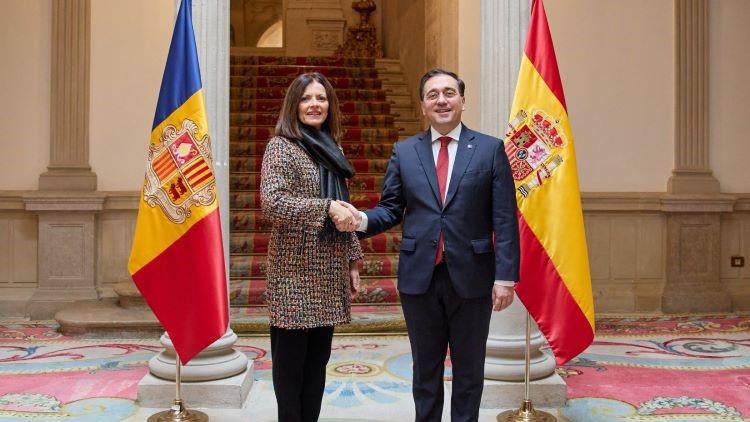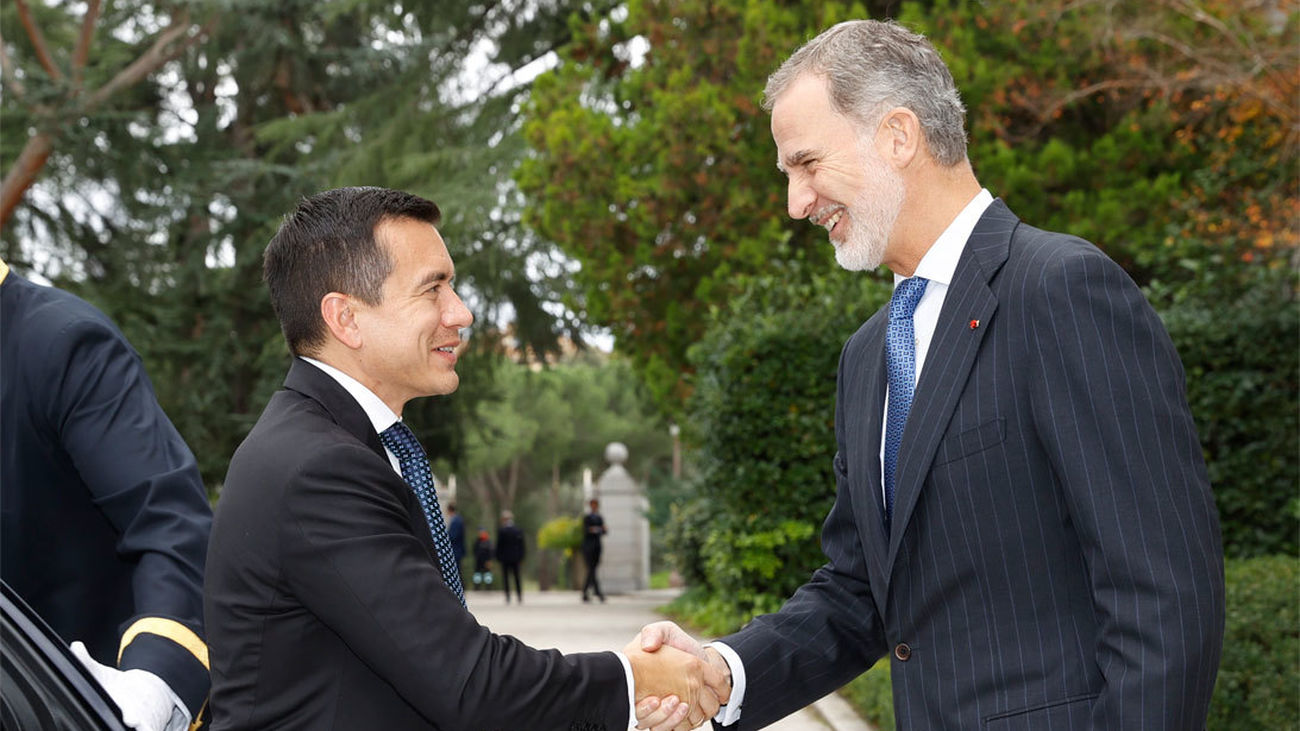Eduardo González
The acting Minister of Foreign Affairs, José Manuel Albares, received yesterday in Madrid his counterpart from Andorra, Imma Tor Faus, with whom he reviewed the progress in the negotiations of the Association Agreement between the Principality and the European Union during the Spanish Presidency of the EU.
“Productive meeting in Madrid with the Minister of Foreign Affairs of Andorra, Imma Tor Faus,” declared Albares through his official account on the social network X. “We have reviewed Spain-Andorra bilateral relations and the progress in the EU-Andorra Association Agreement during our Presidency,” he added.
“At the meeting in Madrid with my Spanish counterpart, José Manuel Albares, accompanied by the Secretary of State (for relations with the EU), Landry Riba,” indicated, for her part, the Andorran minister through the same social network. “We have discussed the status of the Association Agreement negotiations with the EU,” she continued. “The support of the Spanish Presidency of the EU is key in this process,” she added.
This is the second meeting between both ministers in Madrid since the inauguration of Imma Tor Faus to replace Maria Ubach, which took place at the end of May. The first meeting took place on June 2, coinciding with the commemoration of the thirtieth anniversary of the establishment of diplomatic relations (more precisely, of the signing and entry into force of the Treaty of Good Neighborhood, Friendship and Cooperation, through which Spain and France recognized Andorra as a full State and established diplomatic relations). At the end of that meeting, Albares and Tor adopted a joint declaration in which they reaffirmed Spain’s support for the conclusion of an Association Agreement between Andorra and the European Union, less than a month before the Presidency of the Council of the EU.
Andorra and the EU have been negotiating, since 2015, the signing of a new Association Agreement that would allow the Principality to access the European Economic Area (EEA), the framework that brings together all the Member States of the EU and three of the four States of the European Free Trade Association (Iceland, Liechtenstein and Norway) and which guarantees an internal market regulated by the same basic rules. The EU’s negotiations with Andorra are linked to those carried out with two other small territorial states, Monaco and San Marino.
On October 6, the head of the Government of Andorra, Xavier Espot, addressed this matter with the highest authorities of the EU on the occasion of his participation in the third Meeting of the European Political Community (EPC), which was held in Granada in the framework of the Spanish Presidency. Specifically, Espot met with the president of the European Commission, Ursula Von der Leyen, with whom he discussed the current state of the negotiations of the Association Agreement with the EU and about “the need to respect the specificities of Andorra, also in the final stretch of the negotiation, to be able to conclude a text that satisfies all parties,” according to the Andorran Executive.
The head of the Government of the Principality also addressed the issue in Granada with the President of the French Republic and Co-Prince of Andorra, Emmanuel Macron, to whom he highlighted “the priority of closing an Association Agreement with the EU during the coming months”, and with the High Representative for EU Foreign and Security Policy, Josep Borrell; the secretary general of the Foreign Action Service, Stefano Sanino; the president of the European Parliament, Roberta Metsola; and the president of the European Council, Charles Michel.
“He expressed to all of them the opportunity that it represents, both for Andorra and for the EU, to conclude a balanced and satisfactory Association Agreement for both parties, which allows for a stable and trusting relationship with the States that are part of the EU,” added the same source. Espot also met with the Minister of State of Monaco, Pierre Dartout, and the Secretary of State for Foreign Affairs of San Marino, Luca Beccari, with whom he spoke about “the role that small states have in global political forums.”







